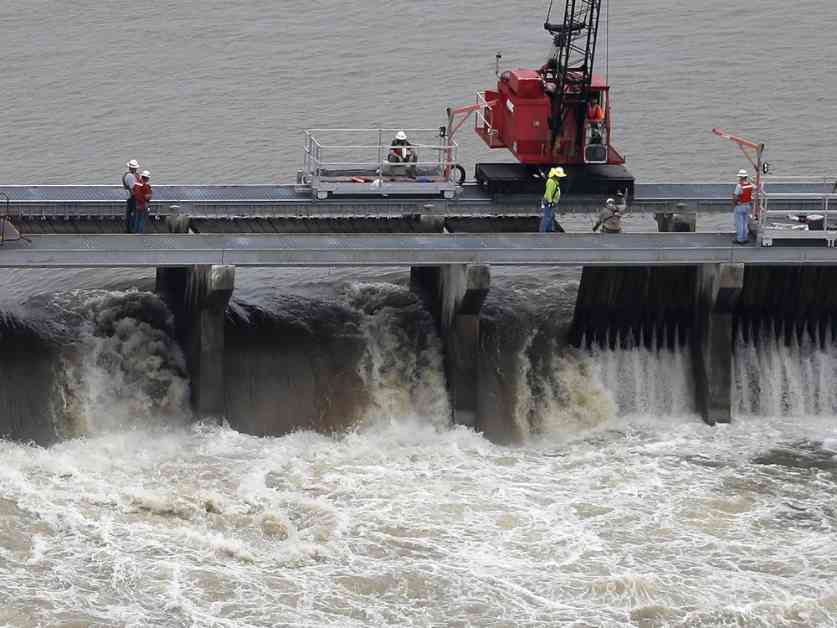Protecting Dolphins Along Mississippi Gulf Coast: Lawsuit Dismissed
A federal judge recently dismissed a lawsuit that aimed to protect dolphins along the Mississippi Gulf Coast, following a tragic incident in 2019 where dozens of dolphins were killed or sickened due to the prolonged opening of a spillway used for flood control.
In a ruling by U.S. District Court Judge Louis Guirola Jr., it was determined that the local governments and business groups who filed the civil complaint in January lacked the legal standing to sue. The plaintiffs, collectively known as the Mississippi Sound Coalition, failed to demonstrate that they faced imminent harm, as per the judge’s decision.
The lawsuit was directed at the Army Corps of Engineers for their operation of the Bonnet Carre’ Spillway upriver from New Orleans. This spillway is utilized to redirect Mississippi River water to Lake Pontchartrain and Lake Borgne, ultimately flowing into the Mississippi Sound in the Gulf of Mexico. While the opening of the spillway helps relieve pressure on New Orleans’ levees during high river levels, it also introduces pollutants and nutrients into the Mississippi Sound, lowering salinity levels.
The Mississippi Sound Coalition’s legal action stemmed from the polluted freshwater discharge into the Gulf in 2019, when the spillway remained open for a total of 120 days. This influx of contaminants was linked to the stranding of dead and sickened bottlenose dolphins along the Mississippi beaches, with reports indicating that 142 dolphins were affected.
The coalition argued that the Marine Mammal Protection Act mandates that agencies like the Army Corps obtain a U.S. Department of Commerce permit when their actions could potentially harm marine animals. They sought a court order to compel the Army Corps to secure permits before future operations of the spillway.
However, Judge Guirola sided with the Army Corps, highlighting that the coalition failed to provide concrete evidence of imminent harm from future spillway openings. The unpredictability of the frequency and duration of these openings, as well as the uncertain threat to dolphins, led the judge to deem the potential harm as too speculative.
The judge pointed out that there was no documentation of dolphin harm during the spillway’s operation in 2020 or in previous years like 2018 and 2016. The lack of substantial evidence regarding harm inflicted on dolphins during these previous instances weakened the coalition’s case.
Robert Wiygul, the attorney representing the Mississippi Sound Coalition, did not respond to requests for comment following the judge’s ruling.
Overall, the dismissal of the lawsuit underscores the challenges in proving imminent harm and establishing legal standing in cases concerning environmental protection. While the coalition’s efforts to safeguard dolphins along the Mississippi Gulf Coast are commendable, the court’s decision highlights the importance of providing substantial evidence and meeting legal thresholds in pursuing such actions.






















